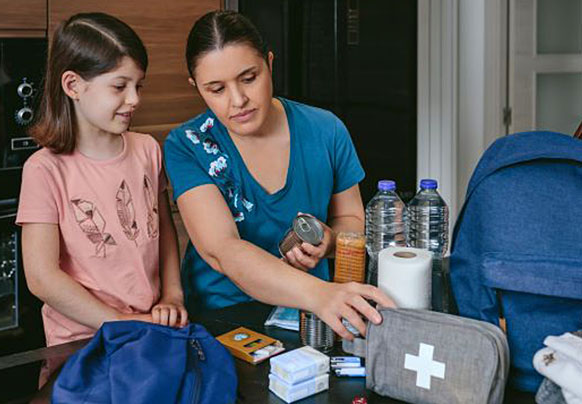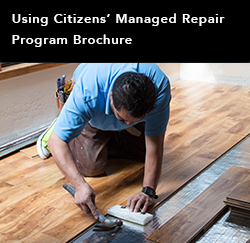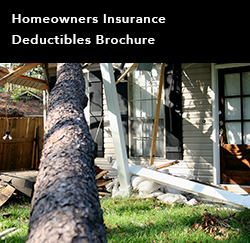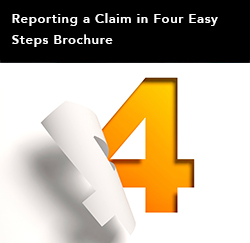
Whether you're evacuating or sheltering in place, building an emergency kit is vital to ensuring a quick and efficient response to a disaster. Your kit doesn’t need to be expensive, and you may already have many necessary items in your home.
Below are some tips to ensure that you have all the bases covered, whether you’re assembling a new kit or updating a preexisting one.
The Essentials
The American Red Cross recommends storing at least a three-day supply of both water and nonperishable foods for evacuation or a two-week supply for sheltering in place.
Other recommended items include a National Oceanic and Atmospheric Administration (NOAA) Weather Radio, flashlights, extra batteries, a multipurpose tool – such as a Swiss Army knife – personal hygiene items, a seven-day supply of medications, a complete first-aid kit, a three-day change of clothes, cash, fuel, and sanitation materials such as baby wipes and household bleach.
What You Might Be Missing
While many Floridians are familiar with the essentials, there are additional items that are often overlooked, such as:
- Pet supplies: Including food, water, leashes, and medications for pets.
- Manual can opener: Essential if your food supply includes canned goods.
- Local maps: Your GPS may not work if cell service is down.
- Over-the-counter medications: Such as pain relievers, allergy medications, and antacids.
- Bug spray and sunscreen: Power outages are common after storms, and you are likely to spend more time outside or with the windows open.
- Fire extinguisher: For the immediate suppression of fire hazards.
- Cash: Experts recommend having at least $250 on hand, in smaller bills, for purchasing necessary supplies and services in case digital systems are down due to power outages or network failures.
- Eyeglasses or contacts: Keep a backup pair of prescription or reading glasses in your kit, especially if you have to evacuate. If you wear contacts, pack a small bottle of lens solution and an extra pair of contacts.
- Comfort items: Books, games, or toys can help reduce stress, especially for children.
Prioritize Personal Documents
In addition to stocking your emergency kit, also be sure to locate the important documents in your household. Keep the physical copies of these documents in a waterproof container, and keep a digital backup securely saved on a flash drive or in the cloud.
Important documents include:
- Personal records: certificates of birth, marriage, divorce, etc.
- Personal identification: passports, driver's licenses, Social Security cards
- Home and auto records: property leases, deeds, mortgage information, vehicle registration, insurance policy details
- Financial documents: pay stubs, financial account numbers, tax documents
- Medical records: health insurance cards, health provider and pharmacy contact information, list of prescription medications
Individual Considerations
Your family may have specialized needs that require preparations beyond basic supplies. As you go through your daily routine, make a list of essentials for each member of your household. Pay close attention to anything that requires power or specialized batteries to operate. Include the maximum amount of time these supplies are viable before needing a power source.
Also, consider environmental factors that may be affected by a change in routine. Some family members may be susceptible to extreme heat during power outages, which may make evacuating to a location with air conditioning necessary.
Common considerations include:
- Preparing a dedicated cooler and chemical ice packs to chill medicines requiring refrigeration
- Having an extra mobility device – such as a cane, walker, or lightweight manual wheelchair – available as a backup
- Bringing communication devices, including laminated cards with phrases or a pen and paper, to help interact with others who may not be prepared to accommodate certain disabilities
- Keeping a list of your medical devices' model and serial numbers. If needed, bring special operating instructions.
- If going to a shelter, finding a quiet corner away from exits to help minimize the stress of unfamiliar situations and locations
- Helping an anxious family member stay calm by bringing a pillow and blanket or other comfort item to hold
To continue organizing your household’s emergency inventory, explore further information and more in-depth checklists through Ready.gov, the American Red Cross, and the Florida Division of Emergency Management.








